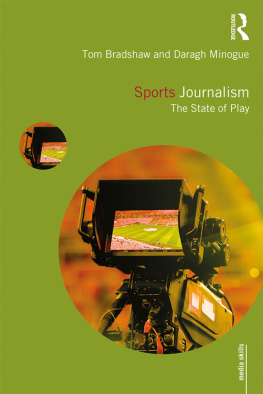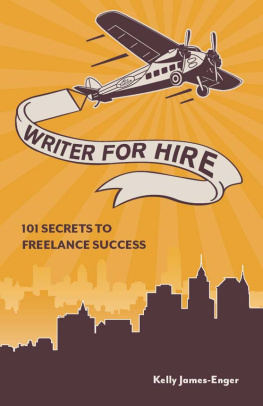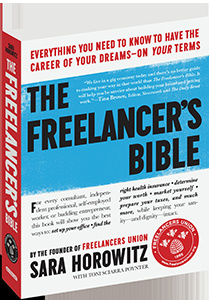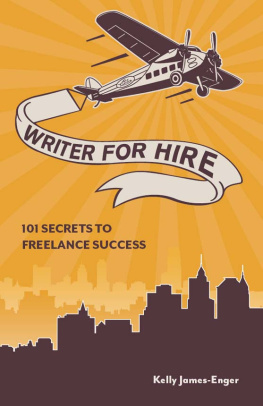WRITERS RIGHTS
Writers Rights
Freelance Journalism in a Digital Age
NICOLE S. COHEN

McGill-Queens University Press 2016
ISBN 978-0-7735-4796-4 (cloth)
ISBN 978-0-7735-9976-5 (ePDF)
ISBN 978-0-7735-9977-2 (ePUB)
Legal deposit fourth quarter 2016
Bibliothque nationale du Qubec
Printed in Canada on acid-free paper that is 100% ancient forest free (100% post-consumer recycled), processed chlorine free
This book has been published with the help of a grant from the Canadian Federation for the Humanities and Social Sciences, through the Awards to Scholarly Publications Program, using funds provided by the Social Sciences and Humanities Research Council of Canada.
McGill-Queens University Press acknowledges the support of the Canada Council for the Arts for our publishing program. We also acknowledge the financial support of the Government of Canada through the Canada Book Fund for our publishing activities.
Library and Archives Canada Cataloguing in Publication
Cohen, Nicole S., 1980, author
Writers rights : freelance journalism in a digital age / Nicole S. Cohen.
Includes bibliographical references and index.
Issued in print and electronic formats.
ISBN 978-0-7735-4796-4 (hardback). ISBN 978-0-7735-9976-5 (ePDF).
ISBN 978-0-7735-9977-2 (ePUB)
1. Journalists Legal status, laws, etc. 2. Self-employed Legal status, laws, etc. 3. Freelance journalism. 4. Online journalism. 5. Freelance journalism Economic aspects. 6. Online journalism Economic aspects. 7. Digital media. I. Title.
PN4731.C63 2016070C2016-903239-6
C2016-903240-X
This book was set by True to Type in 11/13.5 Sabon
For Matt and Marlo
Contents
Acknowledgments
Thank you to all of the freelancers, activists, and organizers who were so generous with their time and encouragement for this project, especially Karen Wirsig and datejie green. Portions of select chapters appeared in Just Labour, tripleC, South Atlantic Quarterly, and the Communication Review, and I appreciate valuable feedback from the journals editors and reviewers. I am grateful to the Social Sciences and Humanities Research Council and the Connaught New Researcher Award at the University of Toronto for research funding. Patricia Mazepa, Leah Vosko, and Stephanie Ross made vital contributions to the formation and completion of this project, and lent ongoing mentorship, support, and enthusiasm. Enda Brophy, Vincent Mosco, Catherine McKercher, Nick Dyer-Witheford, Matt Stahl, Alan Galey, Tanner Mirrlees, Leslie Shade, Brett Caraway, Anthony Wensley, and all of my inspiring colleagues at the Institute of Communication, Culture, Information and Technology at the University of Toronto Mississauga provided crucial support and encouragement along the way. Philip Cercone, Carolyn Yates, and everyone at McGill-Queens University Press helped me bring this book into the world, as did two anonymous reviewers and their insights. Yasmin Jajarmi provided meticulous and diligent research assistance. Thank you to Greig de Peuter for unparalleled generosity and collaboration and for incisive comments on the manuscript (all errors and omissions remain my own), and to Mark, Caryl, Andrea, and Darrin Cohen for indefatigable support in every sense of the word. And extra special thank yous to Matt Carrington, whose love and friendship sustained me through this project and beyond.
WRITERS RIGHTS
INTRODUCTION
Freedoms Double Edge: Freelance Journalism and Precarity
On a grey April evening in 2007, in a drab second-floor union office on Torontos Queen Street East, seventeen people gather to discuss the nascent Canadian Freelance Union (CFU). As a new local of the Communications, Energy, and Paperworkers Union of Canada (CEP), the CFU will be the first trade union in Canada established to represent freelance journalists and writers (the CEP has since merged with the Canadian Auto Workers to form mega-union Unifor). The freelancers seated around a table listen as an organizer explains that the CEP views its survival as dependent upon organizing media workers outside of the union. It has offered funding and freelancers must decide what kind of organization they want to create. The organizer understands some freelancers reluctance to call their new organization a union, as most regard themselves as individuals running small businesses not the type of people who join unions. He asks them to consider what a union could accomplish that individuals have yet been unable to do.
The freelancers in the room are skeptical but intrigued. Most know little about unions; their experience with the CEP is limited to its efforts to prevent newspaper work from being contracted out, restricting freelance work at certain media outlets. They are wary of paying dues and of joining a bureaucratic organization. They want to know how, exactly, a union for freelancers would work. Yet they all face challenges that compelled them to attend this meeting and to consider a unions potential: freelancers pay rates are at a historic low, writers feel undervalued, and publishers contracts demand unprecedented copyrights to writers works without adequate compensation. Individually, freelancers have only been able to work more to try increase their earnings or do less low-paying journalism and more higher-paying corporate or commercial work. The time has come to consider acting together.
Two and a half years later, eight kilometres west on Queen Street, a different group mingles in a hip boutique hotel bar. Around two-dozen freelance journalists and writers gather to launch a partnership between the Canadian Writers Group, a literary agency for freelancers, and the Canadian Media Guild (CMG), the 6,000-member local of the Communication Workers of America-Canada. They sip drinks as Derek Finkle, the Canadian Writers Groups founder, and Lise Lareau, then-president of the CMG, describe the partnership the first of its kind. After participating in a multiorganization boycott of a magazine publishers restrictive contract in 2009, Finkle sought a more effective way to increase writers rates and secure improved contracts. And so he founded an agency, following a literary agency model, and plans to represent one hundred freelancers. The alliance with the CMG extends a second tier of membership to any freelancer willing to pay $150 in union dues. In return, members can access the CMGs group benefit plans and advocacy efforts, and Canadian Writers Group writers receive individual contract negotiations and promotions. The freelancers in the bar, many of whom Finkle represents, are excited. They speak of the benefits of having an agent to do the unpleasant work of negotiating fees and contracts with editors. Finkle believes there is a limited talent pool for in-demand freelancers in Canada, and that only he has the personal relationships with publishers needed to convince them to improve the terms under which those writers work. He is confident that his model will change freelancers fortunes.
These two events represent two different approaches to the collective organization and representation of freelance writers in Canada. Freelancers different responses skepticism and uncertainty in the union office, excitement at the hotel bar signify a long history of remaining outside of organized media labour, yet reflect growing dissatisfaction with contemporary conditions of freelance journalism. That writers are gathering in formal settings to discuss working conditions and new ways to collectively address work-related challenges is significant. That has not happened since 1976, when a dozen Toronto-based freelancers met at a writers home to discuss forming an organization to improve their lot. At the time, pay rates and copyright were low on the agenda. Mostly, freelancers wanted to be treated with respect. They wanted writing to be considered real work and they sought to standardize practices and formalize freelance writing in Canada, primarily for magazines (PWAC 1976b). The fledgling group became the Periodical Writers Association of Canada, which in 2005 changed its name to the Professional Writers Association of Canada (PWAC). Since its inception, PWAC has given freelancers access to professional development, training, and networking opportunities, and has advocated for improving writers pay and for government funding for the magazine industry.
Next page







